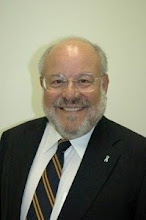As Thanksgiving 2010 arrives, thanks should be given for something that never happened decades ago: the use as planned of bases built all over the United States armed with BOMARC and Nike Hercules nuclear-tipped missiles.
It was the 1950s and 60s and the U.S. feared Soviet bombers might strike major American cities and various strategic targets. So a scheme was hatched to deploy nuclear-tipped missiles. These were early antiaircraft missiles and seen as unable to score direct hits. Thus the plan was to have the nuclear warheads on the BOMARC and Nike Hercules missiles detonate when the missiles reached a formation of Soviet bombers, blowing the formation apart—although also raining radioactivity down below.
The nuclear warheads on the BOMARC and Nike Hercules missiles had massive power. The tips on the BOMARCs had the equivalent of 10 kilotons of TNT. The atomic bomb dropped on Hiroshima had the power of 13 kilotons. The Nike Hercules warheads ranged up to 30 kilotons.
How much radioactive fall-out would have descended on coastal areas where BOMARC and Nike Hercules bases were located depended on the winds and where the detonations of the nuclear warheads occurred. For bases sited inland, and BOMARC and Nike Hercules bases ringed several inland cities including Chicago, the nuclear warheads would definitely have exploded over populated regions of America. The BOMARC had a range of 250 miles, the Nike Hercules 100 miles.
I had the eerie experience recently of walking around two former nuclear-tipped missile sites—a BOMARC base in Westhampton and a Nike Hercules base in Rocky Point, both on Long Island, New York. (The BOMARC program was run by the Air Force and named for its developers—BO for Boeing and MARC for Michigan Aerospace Research Center. The Nike program was run by the Army and named for the Greek goddess of victory, although in this scheme it would have been a potentially suicidal victory.)
I was making a TV documentary on the BOMARC and Nike bases set up on Long Island and elsewhere in the New York Metropolitan Area with Soviet bombers headed for New York City as the major concern.
The documentary, which I did as chief investigative reporter for WVVH-TV in New York, has been broadcast in recent weeks, and WVVH has also put it up on YouTube. You can view it at http://www.youtube.com/watch?v=TLb_8FuH-8M Or just input my name at www.youtube.com along with the words: Avoiding Nuclear Destruction: By The Skin Of Our Teeth.
Each of the 56 BOMARC missiles in Westhampton had its own building. The missiles were positioned on the floors of the buildings and their roofs would open when they were to be fired. The buildings remain, and they and the machinery in them to open the roofs are very solid. Large amounts of money were spent on this scheme.
With the shift by the Soviets (and the U.S.) to ICBMs, the BOMARC and Nike bases were closed in the 70s. The nuclear-tipped missiles are now all gone, but many of the bases remain, frightening reminders of a dangerous period.
The Westhampton BOMARC base was given to Suffolk County which utilizes some of the buildings for storage. The site is also used as a police shooting range. Fittingly, gunfire was in the background as we filmed.
The three-mile Nike Hercules base in Rocky Point is now the site of an Army Reserve Center. The Nike missiles were positioned underground in silos. I stood on one of the welded-shut tops of a silo to explain what had been below.
The words that came to me in visiting the nuclear-tipped missile sites were: by the skin of our teeth. Only by the skin of our teeth, I thought, had we avoided nuclear destruction. Thus the title of the program.
A book has just been published, Continental Defense in the Eisenhower Era: Nuclear Antiaircraft Arms and the Cold War by Christopher J. Bright. He writes about the “effort to facilitate popular acceptance of these weapons…The arms were touted in news releases, featured in films and television episodes…The need for atomic antiaircraft weapons was readily accepted by most Americans, and few objected to their existence or ubiquity.”
Nuclear technology is still being heavily promoted. The U.S. as well as the French and Russian governments are pushing for the building of many more nuclear plants—and inevitably there will be more accidents as bad as or worse than the 1986 Chernobyl nuclear plant disaster. Though ostensibly for civilian use, the reactors would also provide the fuel and give their technicians the expertise for making nuclear weapons—this is how India got the atomic bomb. The Pentagon, meanwhile, still holds nuclear war to be quite feasible. And U.S. Senator John Kyl, an Arizona Republican, is right now seeking to block ratification of a new nuclear arms pact between the U.S. and Russia, a successor to the Strategic Arms Reduction Treaty. The treaty has done a good job in limiting the nuclear weapons stockpiles of both countries and providing transparency. Will Kyl and his followers kill that?
This, too, is a highly dangerous period.
In front of a BOMARC building, I ended the documentary asking: how long will we be able to survive by the skin of our teeth? We should give thanks this week that somehow we got through the Cold War atomic nightmare. Now we must roll back the new crazy atomic push.
Subscribe to:
Post Comments (Atom)


No comments:
Post a Comment